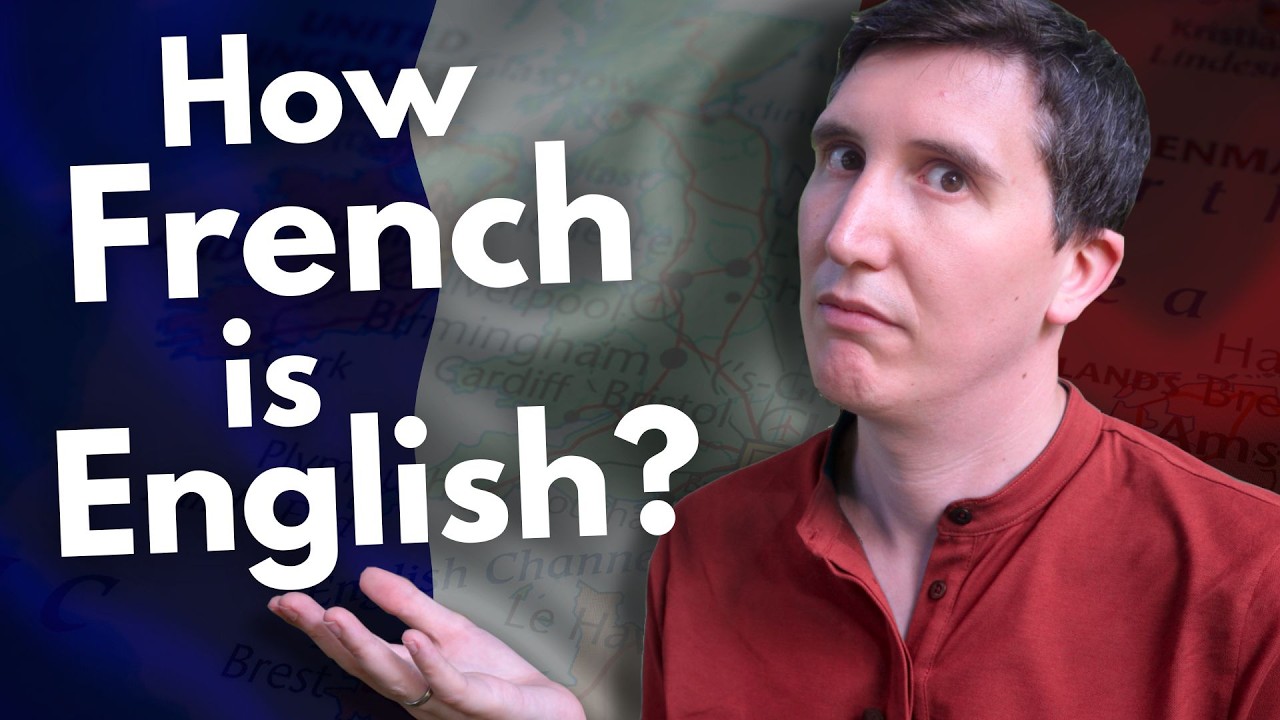I watched the whole video, and I recommend others to do the same. I’ll just comment with additional info here.
Cerquiglini’s “thanks to French that English is international”
That’s a silly claim. English became international due to… floating wood.
I’m being cheeky but serious - a language spreads not based on its intrinsic features, or from which languages it might have borrowed vocabulary from, but by piggybacking on the power associated with its speakers. In this case, the English and then British navy (that I called “floating wood”).
The most meaningful event in English’s history
It wasn’t the Norman conquest, but the very formation of the Anglic languages*, through the invasion of British Isles by people from Jutland, Anglia and Old Saxony. They settled into an island, geographically isolated from other speakers in continental Europe, preventing sound and grammatical changes from “flowing” back and forth.
That’s why most “oddities” in English - like do-support, for example - are shared by neither the Romance languages like French, nor the West Germanic languages like Dutch or German; those “oddities” were born in the islands.
*note: Scots is better addressed as its own language than as an English dialect. Same deal with the [now extinct] Yola and Fingallian.
Old English vs. contemporary English
The biggest differences between both are, in my view
- Lack of case system.
- Lack of grammatical gender.
- The vowel system.
Differences #1 and #2 were not caused by French interference, but due to an internal process - the erosion of the word endings. Case and gender were mostly marked by those endings, that often relied on vowel alternations and nasals, that got shortened and eventually elided - prompting changes that, while might resemble French’s lack of a case system, show completely unique traits, such as lack of number agreement (compare “the red houses” with "les maisons rouges). Also worth noting that French has a M/F gender system, English went from M/F/N to zero.
(A similar process would happen independently with another West Germanic language - Afrikaans.)
By the way, #3 was caused by rather recent changes, starting four centuries after 1066.
The borrowings
Now, regarding the borrowings themselves. It’s true that English borrows a lot of words from both Norman and French*, but… here’s the catch: the vocabulary of a language is like the fur of a critter, highly visible but less important than what’s inside - the grammar, or the critter itself. It’ll exemplify it with two sentences:
- Their code resembles spaghetti, amigo.
- *Apples an two me eating.
Which one of those is recognisably English? #1 contains no native word, but it follows English grammar to the letter; #2 contains nothing but native vocabulary, but the grammar is rubbish. It’s #1.
And even when you look at the vocabulary, some parts are more important than others - the core (words with grammatical role that you use all the time). And the core is still distinctively West Germanic, with a single exception (“they” - borrowed from North Germanic).
*just like Scots vs. English, Norman vs. French are better handled as separated Romance varieties. By the way, the “CH vs. K” and “S vs. CH” correspondences reflect the fact that Norman did not undergo what’s called in French “the second palatalisation”, it only underwent the first one, from Latin. It also missed the /tʃ/→/ts/ fronting from most other W. Romance languages.
Sorry for this wall of text. And thank you for sharing this video! I do think that French influence on English is overestimated, but it’s still interesting info regardless.
As always, thank you so much for your insight!
“Badly pronounced French” is only one part of the rich tapestry / garbage buffet that is the English language.
When I realized, unfortunately in my 30s, that the word “dandelion” is just a badly pronounced version of “dent-de-lion” (even in my country those flowers are called “dente di leone”) I started thinking that there’s some truth in that statement.
No, it’s german with bad grammar.
Based on “anchovy”, “jingo”, and “bizarre”, it’s mispronounced Basque.
Badly pronounced French already exists and is called Walloon
Québécois*
Nah. The last time that Walloon and French were the same variety, that variety was still called “Latin”. They share a lot of developments due to geographical proximity, but one is not a “bad pronounced” version of the other; and if we must label stuff as “badly pronounced”, it’s simply that both are badly pronounced Latin.
French have the term ‘macabre’, which the English adopted and Anglicized by dropping the final ‘re’ sound but kept the spelling for some reason. “Ma ka bre” became “ma kah b”.
The realisation of that -re is highly variable in English. Some speakers convey it as Ø (nothing), some as /ɹə/ or /ə/ (non-rhotic) or /ə˞/ (rhotic).
Every time I’ve heard someone pronounce the -re sound on a YouTube video, there were several comments stating that you shouldn’t pronounce it, so I thought it was the de facto way to say it in American English.
Prescriptively speaking I think that all three (nothing, -re, -er) are legitimate; for reference the word is /ma.kabʁ/ in French, the cluster is clearly illegal in English so the variations can be seen as different “repairing” strategies. (I’d probably render it as /məkɑ:be/ but my non-native pronunciation is strongly biased towards British varieties, specially RP.)
Note YT comments are often a bit silly with prescriptions. Like trying to correct Steejo (a Scottish YouTuber) for, well, speaking Scottish English.
Rich man, poor man, come away. Come to dance the Macabray.
Time to work and time to play. Time to dance the Macabray.
One and all will hear and stay Come and dance the Macabray
All must dance the Macabray






